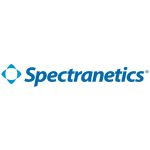 Spectranetics (NSDQ:SPNC) today released the final 1-year results from the Illumenate EU RCT study comparing treatment with its Stellarex drug-coated balloon to percutaneous transluminal angioplasty, touting a 24% higher rate of primary patency with the DCB.
Spectranetics (NSDQ:SPNC) today released the final 1-year results from the Illumenate EU RCT study comparing treatment with its Stellarex drug-coated balloon to percutaneous transluminal angioplasty, touting a 24% higher rate of primary patency with the DCB.
One-year results from the 328-patient trial were presented at the Amputation Prevention Symposium in Chicago this week.
“The Stellarex DCB produced outstanding results in this rigorous trial, validating its earlier first-in-human and interim Illumenate global studies. These consistent, high quality outcomes are achieved with a low dose drug balloon, making this device especially compelling. Physicians now have a powerful tool to prevent restenosis and improve their patients’ quality of life,” study national principal investigator Dr. Henrik Schöder of Berlin’s Jewish Hospital said in a press release.
Primary patency for patients treated with the Stellarex DCB was reported to be 89%, with patients treated with PTA at 65%, according to the study. Freedom from clinically-driven target lesion revascularization was 94.8% for the DCB group and 85.3% for those treated with PTA.
“While results clearly show a highly significant gain compared to PTA, they favorably match the highest rates of primary patency with a low drug dose. It is very encouraging for us physicians to observe such a tremendous evolution in DCB technologies and appreciate how low-dose and highly stable coatings such as Stellarex can achieve and beat such high clinical performance benchmarks while offering excellent deliverability and tractability,” Marianne Brodmann of Graz, Austria’s Medical University Graz said in prepared remarks.
The clinical study is 1 of 5 Illumenate studies of the Stellarex DCB for the company as it looks for U.S. and Canadian regulatory clearance.
“Spectranetics is committed to leading the way in clinical science to provide patients and customers with proven treatment algorithms. We are pleased that the Stellarex DCB achieved top-tier results in its 1st randomized trial, and value our customer and key opinion leader feedback that Stellarex is a next generation device,” CEO Scott Drake said in prepared remarks.
Spectranetics said it is hopeful for a 2017 launch of the device in the U.S.
Covidien sold the Stellarex to Spectranetics last January to appease anti-trust regualtors for its $50 billion merger with Medtronic (NYSE:MDT). The stellarex won CE Mark approval in the European Union in December 2014, a month after Covidien announced the deal with Spectranetics.

